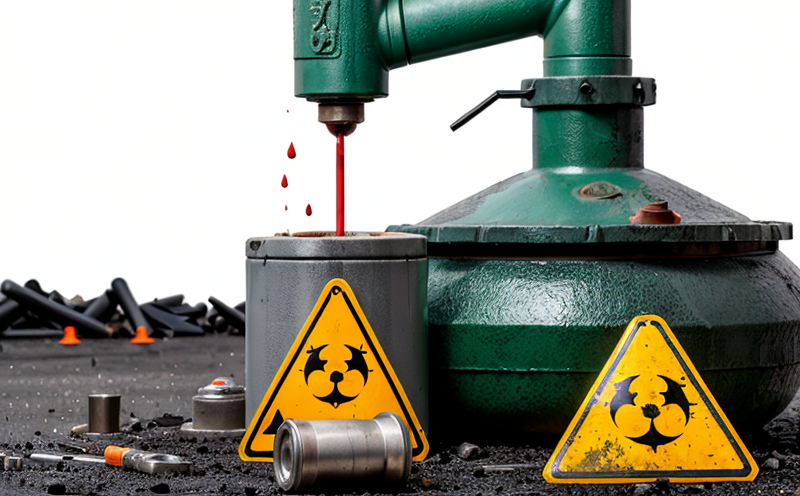Fungicide Hazardous Testing in Fruits and Vegetables
Fungicides are widely used in agriculture to control fungal diseases that can severely affect crop yield. However, their extensive use poses risks of residues accumulating on fruits and vegetables, which may lead to potential health hazards when consumed. Ensuring the safe usage of fungicides is crucial for maintaining food safety standards and public health.
The process involves several critical steps starting from the selection of appropriate samples to ensure representativeness. Samples are typically collected from different locations within a farm or production facility, ensuring variability in the dataset. The first step in our testing protocol includes rigorous sample preparation which may involve washing, slicing, and homogenization depending on the type of produce.
Once prepared, the samples undergo extraction methods that vary based on the fungicide types present. For instance, polar solvents like methanol or acetonitrile are often used for hydrophobic compounds while aqueous solutions are preferred for water-soluble pesticides. The extracted materials then go through cleanup procedures using techniques such as liquid-liquid extraction (LLE), solid-phase extraction (SPE), or a combination of both to remove interfering substances.
Following this, the extracts are analyzed using sophisticated analytical instrumentation. Gas Chromatography-Mass Spectrometry (GC-MS) is frequently employed for its high sensitivity and selectivity capabilities allowing accurate quantification even at trace levels. Alternatively, High Performance Liquid Chromatography coupled with Mass Spectrometry (HPLC-MS/MS) offers superior resolution providing comprehensive identification and quantification of multiple analytes simultaneously.
The results obtained from these analyses are compared against set limits specified by regulatory bodies like the European Union (EU), United States Food and Drug Administration (FDA), Codex Alimentarius, etc., depending on the market requirements. Acceptance criteria vary based on the specific fungicide concerned; generally, they adhere to international standards such as ISO 18567 or EN 12340.
Our laboratory adheres strictly to these guidelines ensuring compliance with global norms and regulations. This approach not only safeguards consumer health but also protects producers against potential legal issues arising from non-compliance. By providing accurate, reliable data on fungicide residues in fruits and vegetables, we empower stakeholders with crucial insights necessary for informed decision-making.
The importance of this testing cannot be overstated given the increasing demand for safer food products worldwide. It plays a pivotal role in ensuring that produce meets stringent quality control standards set by various regulatory authorities. Furthermore, it helps prevent contamination issues that could otherwise compromise both consumer trust and market access opportunities.
Benefits
- Enhanced Food Safety: Ensures compliance with international standards and regulatory requirements, protecting consumers from harmful residues.
- Informed Decision-Making: Provides valuable data for producers to optimize fungicide application practices, enhancing overall crop health without compromising safety.
- Avoidance of Legal Issues: Minimizes risks associated with non-compliance leading to potential fines or product recalls.
- Market Access: Facilitates entry into stricter regulatory markets by meeting stringent standards set forth by importing countries.
Eurolab Advantages
At Eurolab, we pride ourselves on delivering top-notch services backed by state-of-the-art facilities and experienced professionals. Our team comprises highly qualified experts who possess extensive knowledge in chemical analysis and food safety assessment.
We employ cutting-edge technology including advanced GC-MS systems capable of detecting minute traces of pesticides, ensuring precision and reliability throughout the testing process. Moreover, our laboratories are accredited to meet ISO/IEC 17025 standards reflecting our commitment to quality assurance.
The use of standardized procedures ensures consistent results across different samples, thereby building trust among clients. Additionally, we offer rapid turnaround times without compromising on accuracy or comprehensiveness, allowing quick feedback for timely interventions if necessary.
Our comprehensive service package includes not just the testing itself but also detailed reports tailored to meet individual client needs whether it’s for internal use or submission to regulatory bodies. We understand that every stakeholder has unique requirements hence we customize our offerings accordingly.
Why Choose This Test
The significance of fungicide hazardous testing in fruits and vegetables cannot be emphasized enough, especially considering the growing awareness about food safety issues. As a leading provider in this field, Eurolab has established itself as a go-to partner for organizations seeking reliable and accurate testing services.
Our commitment to excellence sets us apart from others in the industry. By choosing us, you gain access to world-class expertise combined with advanced analytical tools designed specifically for pesticide residue analysis. This collaboration ensures that your produce not only meets current standards but also remains competitive in an increasingly demanding marketplace.
We recognize that each client has distinct priorities when it comes to testing requirements. That’s why our team works closely with you from the initial consultation stage through final report delivery, ensuring complete satisfaction at every step along the way.





